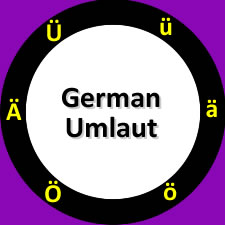
menn-r with the article, menninir, so always in old writers, but in mod. mann-r, which form also occurs in old poets, engi ma nnr und ra nni, Vellekla, (for the change of nn before r into ð see the introduction to letter N) gen. færa lyrit sinn fram, to utter one’s veto, id. 111 ek ver lyriti mínum, löglyriti dómendum at dæma, id. 226 hann (the Goði) skal nefna sér vátta, áðr hann færi lyrit fram, í þat vætti, at ek ver lyriti, goða-lyriti, löglyriti fullum dómendum at dæma um sök þá … enda skal hann svá verja kviðmönnum lyriti, at bera kviðu um hann, i. 31 ok er únýt stefna hans eðr lyriti (lyritr?), Grág. 213 eptir þat nefndi Þorkéll sér vátta, ok setti (varði?) þeim lyriti, ok fyrirbauð þeim at dæma, Lv.
INSERT A WITH UMLAUT FULL
109 kaupa land lagn kaupi ok lyritar, to buy land by a lawful bargain and with full tide of possession, ii. láta lyrit koma fyrir sök, to stop on a case, Grág. 224 verja lyriti haga, 225 þótt maðr veri fleirum lyriti (dat.), 226, Nj. to put under veto, to vindicate one’s right, forbid, or the like eigi varðar hagabeit, nema lyriti sé varið, Grág. in the phrase, verja lyriti, or verja e-t lyriti, to defend through a lyrit, i. The word lyritr occurs at every step in the Grágás, esp. 38 neglect of this was contempt of court, punishable by the lesser outlawry. the phrases, taka lyrit af Goða, selja lyrit, ef Goði færir lyrit sinn sjálfr fram, and similar law phrases, Grág. A Goði alone, by virtue of his office, was entitled to stop a court in this way, whether personally or by one of his liegemen, so that if any one else wished thus to stop a suit, he had first to go to his liegelord (Goði) and be authorised by him to do so cp. a veto Goða-lyritr, the veto of a Goði ( Priest), forbidding the court or neighbours to deliver a sentence or verdict in a case, and thus quashing the suit. 103, lines 14 and 21, but lyritinn several times in the same page: nom.

About the gender (masc., not fem.) there can be no doubt, from the numerous instances in the Grágás but in the 13th century the word began to become neuter, thus we have lyritit, Grág. make a ‘law-rör,’ a lawful landmark, a lyrit this, we believe, is the etymology of this much-contested word.

rör)-fiuri stenar oc þri stenar mughu rör heta = four stones and even three stones may be called rör, i. In Sweden there were often five mark-stones, but it is added (Schlyter iii. lý-ryr-ti, by assimilation and by weakening the y into i, lyritti the t being inflexive: its literal sense, therefore, is a lawful rör or landmark. law exactly answers to lyrit in the Norse law lyrit is thus qs. Lyritr is a compd word from lög, law, and rör or reyr, a landmark, which word in the old Swed. Former attempts at an etymology, from læ and rifta (Björn á Skarðsá), hlýrar and réttir (Pal Vídal.), lygi and rift (Fritzner), must be dismissed tiie spelling lyri ftar, which once or twice occurs in Norse MSS. (Kb.) the alliterative phrase lagalyritr, as also the invariable spelling in the Grágás, shew that the word had no initial h. 193 the quantity cannot be ascertained because the vellums do not distinguish between long and short vowels it is spelt with one t throughout the Grág.

List of extended special HTML characters and codeĪccent/reversed apostrophe with no letter.M., or better lýritr or lýrittr, gen.

If you're using a WYSIWYG web page editor, make sure you're inserting these codes into the HTML editor portion of the page and not the page layout or WYSIWYG section of the editor.


 0 kommentar(er)
0 kommentar(er)
